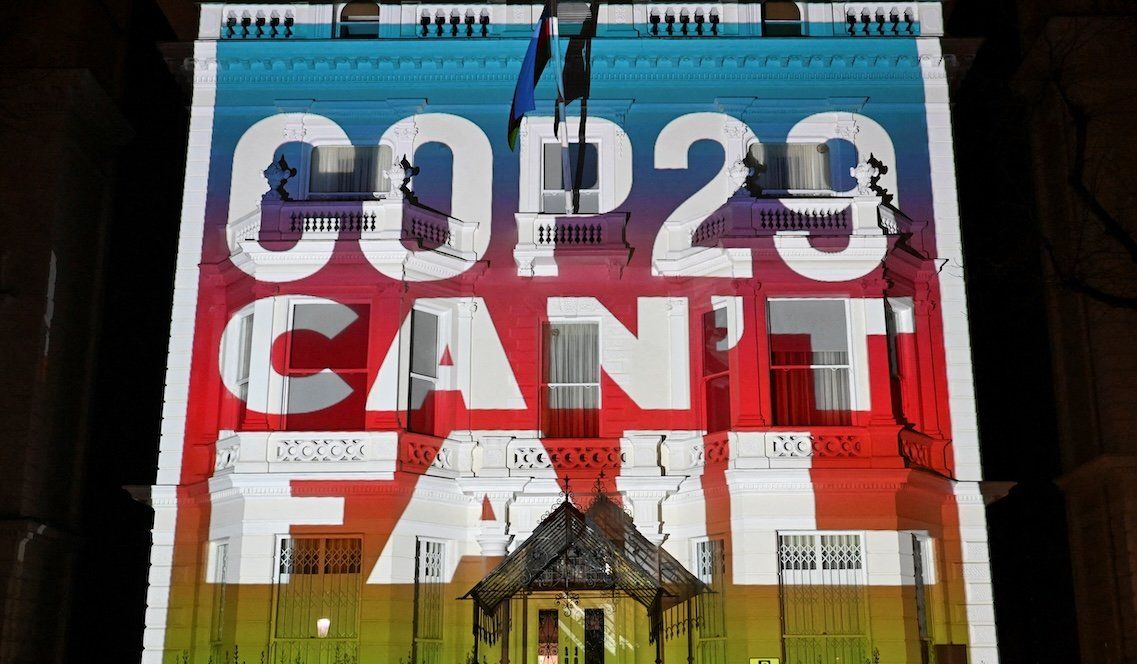Donald Trump’s election victory last week will loom large in the minds of delegates at this year’s UN climate conference (COP29) in Baku, Azerbaijan. The government, corporate, and civil society representatives meeting from Nov. 11-22 will be forced to reckon with the return of the climate skeptic who withdrew the world’s largest economy from the Paris Agreement during his first administration. We asked Eurasia Group expert Herbert Crowther how the prospect of Trump’s return to office will affect COP29 and UN efforts to mitigate climate change more broadly.
What has Trump’s attitude generally been toward climate concerns?
Trump was largely dismissive of climate change as a pertinent economic or political issue during his first administration. Though not prominently on display during the recent US election cycle, his attitude toward the issue has not changed since his first term – which will likely become more evident when he takes office next year. He will almost certainly move to scale back programs to develop new low-carbon technologies championed by President Joe Biden’s administration, including those created by the Inflation Reduction Act. That will put more burden on state and local-level officials, who helped fill the climate policy void during Trump’s first term and kept the US energy transition moving forward.
How will Trump’s election affect the mood at COP29?
Trump’s election will significantly dampen the atmosphere at COP29, both in terms of negotiating priorities and broader sentiment among negotiators. Trump’s election will make it harder to reach a consensus on ambitious new targets, particularly for climate finance. Delegates will not regard any commitments made by the outgoing Biden administration as very credible; consequently, other governments will be more reticent to make ambitious promises of their own. In terms of broader sentiment, many negotiators will already begin turning their attention to where the COP process will go next year when Trump takes office and likely withdraws the US from the Paris Agreement again (Biden’s administration rejoined the agreement). The COP process has been largely focused on advancing the key Paris aim of limiting global warming to 1.5 degrees Celsius above pre-industrial levels.
Given this context, what COP29 objectives are likely still feasible?
One area where negotiations can still likely move forward involves the so-called Article 6 rules for the sale and purchase of carbon emissions credits. Talks around Article 6 have resumed this year after their very public breakdown last year at COP28. They will not be dramatically altered by the US election result and are still trending in a positive direction. For the issue of carbon market rules, the US has stuck to a negotiating position that is more aligned with that of emerging markets, meaning it is not a hurdle to reaching a deal in Baku.
What objectives are not?
Negotiations on assistance from developed economies to emerging market economies to finance climate change mitigation efforts is likely an area that will suffer the most at COP29 as a result of Trump’s victory. There was already limited room for consensus on a new umbrella target for global climate finance – the so-called New Collective Quantified Goal, or NCQG. Trump’s election will likely move the conversation even further away from targets like the $1 trillion in annual climate finance deployment that many emerging markets had been pushing for. Another important topic that will be affected by Trump’s election is the next round of country-level climate plans – the so-called nationally determined contributions, or NDCs. By next February, all parties to the Paris Agreement must submit new plans covering their emissions goals until 2035. With Trump’s election and a worsening outlook for agreements at Baku, more of these plans are likely to present cautious targets, which bodes poorly for medium-term efforts to combat climate change.
Where does the COP process go from here?
A second Trump administration will almost certainly withdraw from the Paris Agreement again. Though the COP process already survived one US absence during Trump’s first term, the global climate policy environment faces greater challenges today. The timeframe to meet targets is shorter, and tensions have intensified between industrialized and emerging markets over who bears the most blame for climate change and should pay for mitigation efforts. Many US states, corporations, and financial institutions will remain relevant players at COP and will continue to push the US energy transition forward, but they will not be able to compensate fully for the lack of federal policies. Meanwhile, the US absence will place greater pressure on China and the EU to assume more of a leadership role in COP and shoulder greater financing commitments. This year’s conference will provide some early signals about that, but 2025 — especially the buildup to COP30 — will be the real litmus test.
Edited by Jonathan House, senior editor, Eurasia Group
